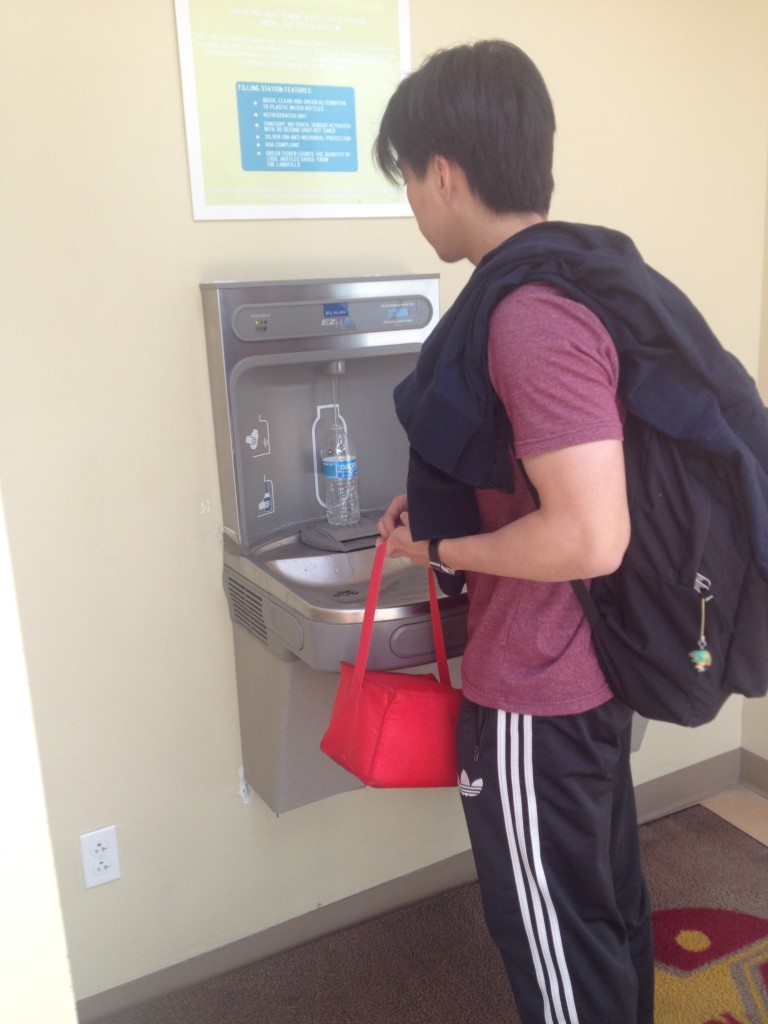California State University, Dominguez Hills strives to be a good steward to the environment, and on the occasion of Earth Day, below are just a few of the green projects currently implemented on campus to improve our carbon footprint and be more sustainable.
Recycling
In 2013 alone, the campus recycled nearly 200,000 pounds of paper, plastic, glass, cardboard and cans, approximately 34,000 pounds more than 2012. In addition, the university’s recycle program now recycles green waste, construction and demolition debris, concrete and dirt, electronic waste, ink and toner cartridges, scrap metal and wood pallets.
The main push of the recycling program on campus is in the collection of paper generated in offices. Since 2007, the recycle program coordinator Jose Robledo has worked to increase the number of blue recycling containers that are available for office use. Suites and offices can request large, medium, and small blue recycle bins from him.
An area that could see expansion in the future is in the collection of bottles and cans. A student-led research project collected data on what areas on campus had the highest traffic, and surveyed the location of bottle and can recycling containers and trash cans. Robledo said the data gathered from that project will help him make more informed decisions on how to improve that program, which currently includes 50 recycling containers around campus.
To learn more about the Recycle Program, contact Jose Robledo at (310) 243-2161.
Loker Student Union

The social hub of campus, the Loker Student Union sees more traffic than most buildings on campus, and with that comes electricity usage and waste. Through the years, the union management has done a number of things to become more sustainable:
In all restrooms in the building, urinals and toilets have automatic flushers and soap and paper towel dispensers are automatic as well, to reduce over-usage.
Through a Greenovation Grant funded by the Chancellor’s Office and in partnership with Associated Students Inc., the LSU installed the Water Bottle Filling Station and distributed BPA-free water bottles to students.
The union uses reclaimed water for irrigation throughout its landscaped areas.
They contribute to the overall campus recycling efforts with recycling containers for bottles and cans throughout the building, and through the recycling of cardboard.
Energy Efficiency
Through a service-learning project with students in Natural Resources GEO 420 over a year ago, the university inventoried lighting usage and researched energy saving alternatives that resulted in the installation of more than 400 light sensors in the hallways and in some office spaces within Welch Hall and the South Academic Complex. The energy savings is significant, with as much as a 78 percent energy savings realized alone in the hallways that have the new sensors.
By the end of the year, new LED light sensors will be installed in the hallways and outside corridors of the Natural Science and Mathematics and Social and Behavioral Science buildings, with an expected 90 percent energy savings in those areas.